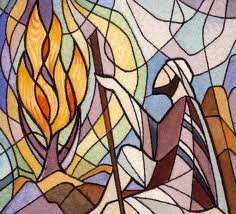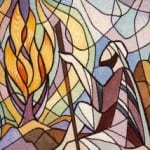Are leaders destined for their role or are they self made? In truth it is a function of both. It is clear that G-d’s eternal plan will move towards the goals that Hashem has determined, regardless. This is true in spite of the fact that the leaders and kings of the world assume that it is they that run the events of the world and determine their outcomes. King Solomon offers a different view:
The king’s heart is in the hand of Hashem, like the rivers of water; He turns it wherever He wishes.”( Proverbs 21:1,)
The twists, turns and travails of that river of history may be a function of the decisions of mortal men but the ultimate destination is not. In the end even the choices of a leader seems to be divinely ordained;
He changes the times and the seasons; He removes kings and raises up kings”( Daniel 2:21).
In the Torah portion of Shemot (Exodus) we begin to see the formation of a people. Yet concurrent with this we discern the formation of its leader, Moshe.
It was a time of great oppression.
And Pharaoh charged all his people, saying: ‘Every son that is born you shall cast into the river, and every daughter you shall save alive.”( Exodus 1:22)
It is at this very difficult time that we read of a marriage and birth. There is an immediate sense of something new and dramatic happening: “And the woman conceived, and bore a son; and when she saw him that he was good , she hid him three months.( ibid 2:2)
These words” she saw him that he was good” are not there by happenstance as they are the identical to words spoken by the Divine in the Creation of the world.
And God said: ‘Let there be light.’ And there was light. And God saw the light, that it was good…( Genesis 1:3-4).
The baby’s mother ,Yocheved ,was able to discern with the prophetic eyes that G-d always affords mothers , that a great illuminating light would come forth from this young infant. His future life would impact the world and illuminate the darkness. She realized that she could not hide him any longer so she placed him a wicker basket, called a teivah in Hebrew. (Exodus 2:3).)
This word “Teivah” is the same word used to used to describe one other item in the Torah. That item is the Ark that carried Noach and his children into the new world of possibilities.
Make thee an ark A TEIVA of gopher wood; with rooms shalt thou make the ark, and shalt pitch it within and without with pitch.” (Genesis 6:14).
The same concept of an ark, prepared in much the same way , taking individuals or an individual into a new and yet unrevealed destiny. The predetermined pieces of the puzzle of new leadership, then, are in place.
After being adopted by Pharoah’s daughter, but raised by his natural mother, we then read of the young Moshe;
It happened in those days that Moshe grew up and went out to his brethren….”(Exodus 2:22) He walked around and sensed their need and their suffering. “He saw their burdens.” Moshe was beginning to act out his innate qualities that would make him the leader and teacher of the Jewish people.
Then we read that “.. he saw an Egyptian man striking a Hebrew man of his brethren 12 He turned this way and that and saw that there was no man , so he struck down the Egyptian and hid him in the sand.”(ibid 2:11)
The author of the HaEmeq Davar writes that the verse does not say “he did not see any man” but rather “he saw there was no man.” He looked around and saw people, but there was no one that could or would stand up for justice. There was no one to stand up as a man. All around the area were oppressors and oppressed, and amongst the oppressed were many that would be revealed as traitors.
Following this incident we read, “He went out the next day and behold two Hebrew men were fighting. He said to the wicked one “Why should you strike your fellow . He replied “Who appointed you as a dignitary, a ruler, and a judge over us? Do you propose to murder me as you murdered the Egyptian?”(ibid 2:13-14 )
This answer shocked and surprised Moshe. “…Moshe was frightened and he thought, ‘Indeed the matter is known.’”(ibid 2:14). The deeper understanding of the words “the matter is known” was an answer to a question that may have perplexed Moshe. If Moshe wondered as Rashi implies, what kept this people in bondage for so long, “Indeed the matter (was now) known.”Moshe then gives up on this people. He believed that they did not have what it takes to recapture freedom. He then in fact runs away at the age of twenty and is not heard from again until the age of eighty. Sixty years of silence, disappointment and loss.
It is then that he is confronted by a burning bush. We read the following;
An angel of HaShem appeared to him in a flame of fire from within the thorn bush, and behold, the thorn bush was burning with fire, but the thorn bush was not being consumed. So Moshe said, “Let me turn now and see this great spectacle why does the thorn bush not burn up?” HaShem saw that he had turned to see, and God called to him from within the thorn bush, and He said, “Moshe, Moshe!” And he said, “Here I am!”( Exodus 3:2-4)
The bush was burning with fire and was not consumed. Moshe then intuited and understood the great message of this burning bush .Just as this thorn bush was beset by fire so his people were inflicted with the fames of slavery. In fact this was but the beginning as they would experience many horrific fires of oppression in their history. Yet they would not be consumed and they would not lose hope. Such a people therefore needed a befitting leader to begin their long voyage.
There is ,then ,great significance to the words “HaShem saw that he had turned to see, “. G-d clearly was waiting for that determined choice of Moshe to step into his destiny. After that choice and only after that choice, G-d began to talk to him. Moshe had passed the test of leadership. It is probably true that most people would have been intrigued by this supernatural phenomenon. Yet Moshe knew that if he wanted to continue the state of anonymity he had adopted for over sixty years, he needed to ignore what he saw.
The true leader must learn to look around at the world and its events with discerning eyes. They then must make true choices regarding the future and direction of their people. They must learn to listen with their eyes and only then truly hear the call of destiny. Then they must muster the courage to choose.
It is at this point that Moshe begins the process of being the leader that we was destined to become. Yet he could not have done that if he did not take a determined step into that role. There would be many more tests and many more steps but Moshe was seizing the opportunity to be a vessel in the plan of his people’s history. That was a decision that he had to make.
May our current leadership develop the courage to make similar choices.
LeRefuat Yehudit Bat Golda Yocheved

